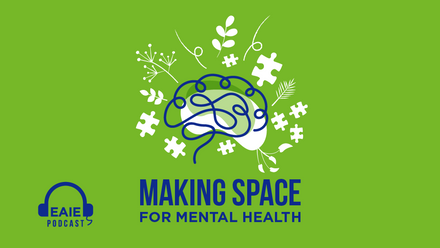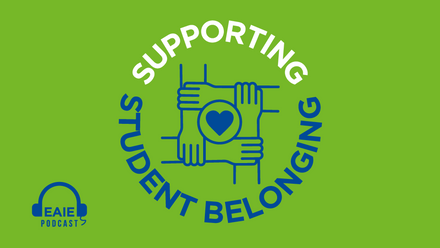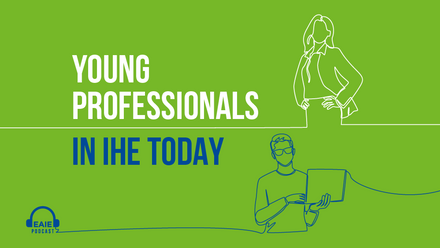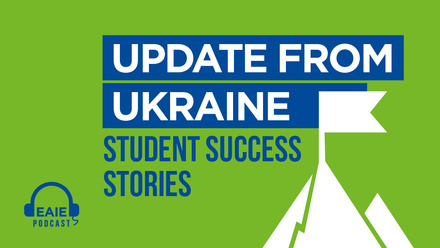The door is open… but are international students coming in?

Have you ever visited a counsellor? A therapist? A coach? If you have, you know that before getting there, it probably took you a while to warm up to the idea and make the phone call or send the email. Perhaps you were browsing the web for weeks before finding the right person, and maybe you browsed your calendar even longer before finding the right time. Perhaps you actually let the idea go, after you spoke with a friend, a relative or a kind stranger. Maybe you even found a way around your psychological pain and things somehow felt more tolerable – until they didn’t anymore, and the cycle started all over again…
It is a well-known fact that there is usually ambivalence and conflict around seeking psychological help. Many people only do it when their emotions become too overwhelming and they have exhausted all other resources. Many finally arrive to therapy feeling not only the intense pain of what brings them to the session, but also terribly embarrassed for having to do so. In many cultures there is the belief that there is "something wrong with you" if you cannot figure things out by yourself, that seeking help is not a sign of strength, but of weakness and deficiency.
In many cultures there is the belief that seeking help is not a sign of strength, but of weakness and deficiency
This ambivalence and sometimes flat-out resistance is particularly felt among many international students, who, for a variety of reasons, find the idea of seeking psychological help on campus particularly difficult. But, what are the reasons behind this refusal? According to research conducted in the context of the COVID pandemic, which could also apply to other situations of distress, some of these reasons include the following.
Stigma and embarrassment
In some cultures, particularly those which are more traditional, seeking psychological support is a last-resort strategy reserved for those who are "crazy" or completely "out of control". What is valued and rewarded in these contexts is to avoid opening up about one’s private emotions; it is particularly expected of young men to "keep it together" and "be tough" or even "suck it up". The consequence is that students coming from these cultures suffer in silence and tend to withdraw from their academic and social worlds when they can no longer hide their pain from others.
Lack of mental health literacy
Oftentimes, the problem is that students lack mental health literacy, which can be defined as "knowledge and beliefs about mental disorders, which aid their recognition, management or prevention". This lack of knowledge usually translates into lacking the ability to recognise specific disorders (such as depression or anxiety) or different types of psychological distress (such as homesickness), usually holding wrong ideas and beliefs about their causes, and the kinds of interventions that can actually make a difference.
Moreover, when there is no mental health literacy, people tend to hold the wrong ideas pertaining to self-help interventions and about the professional help available. Of course, this can come as a surprise in a time when students seem to have more access to mental health information than ever before. However, keep in mind that, if students do not have science-backed understandings of mental health, they will end up looking for answers on Instagram or TikTok!
Not taking a condition seriously
As a by-product of lack of mental health literacy, it might happen that some students underestimate the impact of their mental health struggles, trying to deny or deflect them, and developing avoidant behaviours that fall into the category of ‘negative coping strategies’: those which involve denial and disengagement, such as sleeping longer, drinking, smoking or seeking distraction. In these cases, minimisation is the mechanism at play and is their default response when they are confronted by those who are concerned.
Lack of trust in counselling interventions
In some cases, the door is open, but students do not want to come into the counsellor’s office because they have a negative bias pertaining to counselling interventions or the counsellors themselves. Some could argue that these attitudes are projections of the unwanted parts of themselves onto the therapists ("The therapist is the weird one, not me!"), but these attitudes might also reflect biases and prejudices from their cultures or families. In these cases, students follow their cultural playbook and might seek resources that are not available or appropriate in their host cultures, leaving them feeling alienated from others.
Language and cultural barriers
Some international students might resent the fact that they have to speak with someone from a different culture, and in a different language in which they might not feel absolutely fluent. These challenges might prevent them from seeking psychological support on campus and leading to further isolation.
Self-management or self-reliance
Lastly, ‘self-management’ or ‘self-reliance’ can be another reason explaining an international student’s reluctance to seek the support of a professional counsellor. In these cases, students might look for mental health apps, websites, forums or online groups that give them a sense of self-control and allow them to retain absolute secrecy of their psychological suffering. In these cases, though students might be looking for information in the right places, they are still refusing the richness of the supportive relationship that a counsellor could provide them, particularly in times of crisis.
Keeping the door open – no matter what
If there is one good thing that came out of the COVID pandemic, it is the fact that more than ever before, conversations around well-being and lack thereof have become more openly shared, normalised and destigmatised on social media and pretty much everywhere else. As communities and full societies recognised the need to take care of our mental and physical health, many young people became strong advocates and defenders of mental health interventions. Having said that, as student support professionals, it is on us to meet students where they are and How to help students cope with mental health challenges.
As student support professionals, it is on us to meet students where they are and reach out to them in culturally sensitive and innovative ways
Finally, let’s not forget that, in the context of this year’s World Mental Health Day, the slogan ‘Make mental health & well-being for all a global priority’ invites us all to prioritise caretaking and support as signs of strength and resilience, not of weakness and shame. Let’s make sure that our international students know this for a fact.






